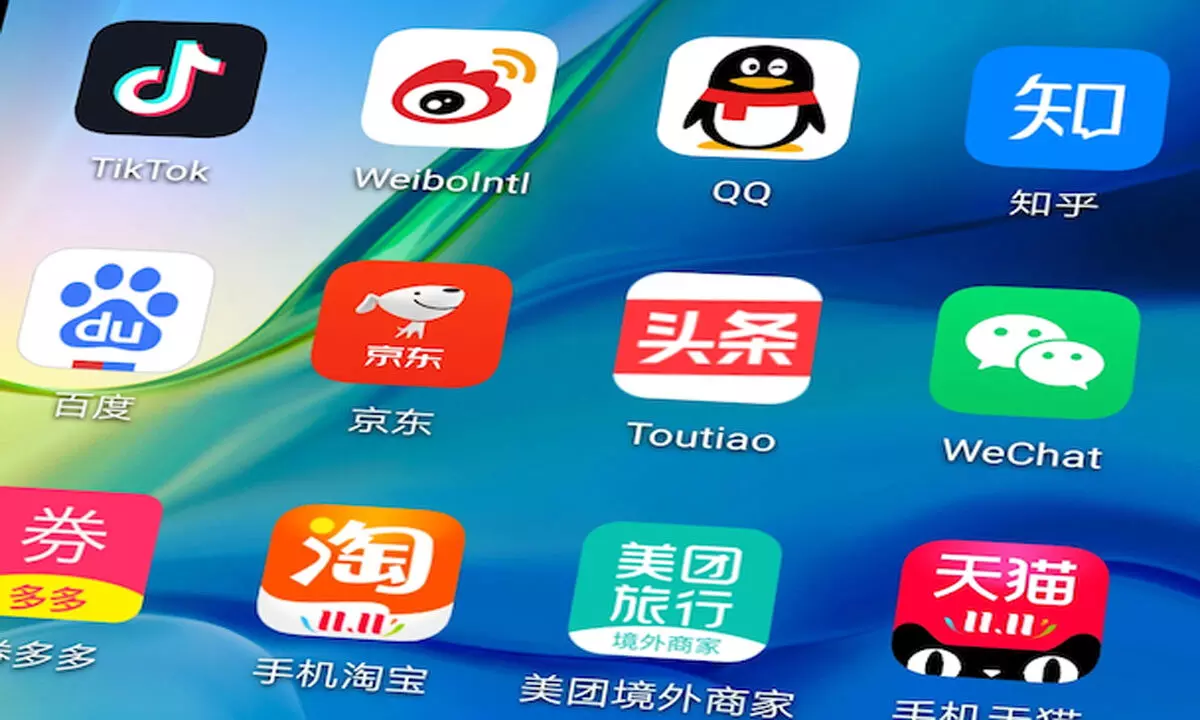Chinese tech companies turn jittery after India deflates their ‘surveillance balloon’
Centre bans around 200 apps over ‘Chinese linkage’ concerns
image for illustrative purpose

ED seized Rs 5,551.27 crore of Xiaomi India lying in its bank accounts under the provisions of FEMA. However, in a major relief to Xiaomi India in December, the Karnataka High Court quashed the Income Tax department's order of attaching Rs 3,700 crore worth fixed deposits in a tax evasion case against the company. Indian authorities also prevented Vivo from exporting 27,000 smartphones worth $15 million for more than a week
Amid reports that the Chinese ‘surveillance balloon’ has collected information on military assets ‘in countries of emerging strategic interest to China’ like India, New Delhi has had its share of ‘national security’ concerns with Chinese tech companies and platforms.
The total trade between the two countries has surpassed $125 billion while Chinese exports to India accounted for the majority of this figure at $97.5 billion.
India's smartphone market has been dominated by Chinese companies like Xiaomi for several years now. Raw materials and components to assemble several tech products in the country are still arriving from China, although the government's emphasis on local manufacturing is slowly changing the scenario.
India's tech tussle with China began in June 2020, after troops from the two countries were engaged in aggressive skirmishes along the Sino-Indian border, including in the proximity of Pangong Lake in eastern Ladakh and the Tibet Autonomous Region.
Following the Galwan Valley skirmish on June 15, 2020, gave birth to Indian campaigns calling for boycott of Chinese products. There were also demands to bar the entry of Chinese companies into the country.
The first ban on Chinese apps was announced in the same month, starting with 59 apps, including popular platforms like TikTok, Shareit, WeChat, UC News, UC Browser, Mi Community and more. Subsequently, India banned more than 300 Chinese apps. In 2020, the Indian Army asked its personnel to delete 89 mobile apps, including several Chinese ones, from their smartphones to curtail leakage of information.
However, the bigger tech skirmish came when India took on the leading Chinese smartphone companies, which are a dominant force in the country.
The Union government looked into cases of alleged tax evasion by three Chinese mobile companies -- OPPO, Vivo India and Xiaomi. They all were served duty evasion notices by the Directorate of Revenue Intelligence (DRI).
The Enforcement Directorate (ED) seized Rs 5,551.27 crore of Xiaomi India lying in its bank accounts under the provisions of the Foreign Exchange Management Act (FEMA).
However, in a major relief to Xiaomi India in December, the Karnataka High Court quashed the Income Tax department's order of attaching Rs 3,700 crore worth fixed deposits in a tax evasion case against the company.
Indian authorities also prevented Vivo from exporting 27,000 smartphones worth $15 million for more than a week.
A Chinese state-run Global Times report later claimed that If India uses more unfair practices to aggravate foreign companies' concerns, "It will not only hurt interests of Chinese companies but even the reputation of India's business environment may be irreversibly damaged".
"Relevant departments in India need to further investigate and make clarifications in a timely manner to dispel anxiety in the business community," said the publication.
According to technology analysts, it will be difficult for the country to rid its dependence on China's relatively cost-effective mobile phones.
Reports also surfaced late last year that China's ZTE Corporation and Huawei's Indian unit workforce decreased by about 90 per cent over the past two years, as the companies have been unable to acquire new businesses, including the supply of 5G technology in the country.
In its latest digital strike, the Centre last week ordered to ban of around 200 apps, including 138 betting apps and 94 loan-lending apps, over ‘Chinese linkage’ concerns.
The IT Ministry was recently instructed by the Union Ministry of Home Affairs (MHA) to ban such apps, which operate through a third-party link.
Sources said that all these apps were found violating Section 69 of the IT Act and contained materials which were deemed a threat to India's sovereignty and integrity.

